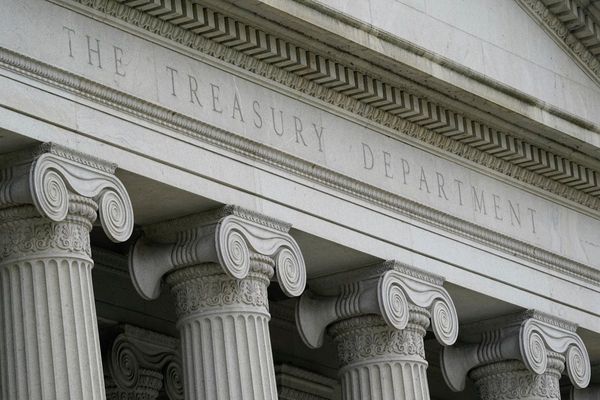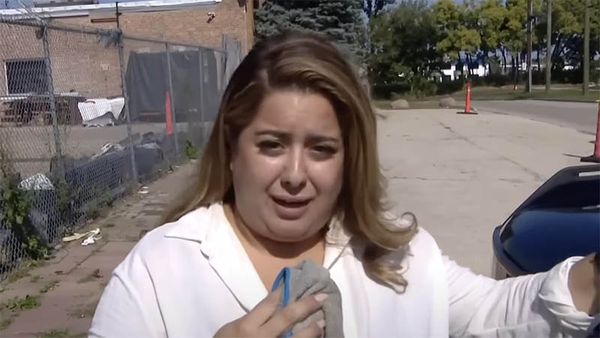Does your retirement plan have holes in it?
It's better to identify any weaknesses or potential issues before you quit working. A good time to stress-test your plan is the three- to five-year period before you retire. Use these key pre-retirement years as a dress rehearsal for when you have to live off your savings.
"It's a wonderful time to do a real look-in-the-mirror assessment of your financial situation," said Tony Ogorek, president and founder of Ogorek Wealth Management. "This may be an opportunity to bail yourself out and get yourself rightsized before your paycheck stops."
It's better to figure out if you're overspending, living beyond your means and cash-flow starved before you have to start drawing on your 401(k). If your finances seem wobbly while you're still earning a salary, it's a stretch to think you'll be free of financial worries in retirement. The years leading up to retirement is the time to run some scenarios, says Beau Henderson, CEO of RichLife Advisors. "It's easy to miscalculate," said Henderson.
Here are common clues that could suggest trouble ahead.
Too Much Debt Going Into Retirement
Paying off mortgages, credit cards, car loans and other debt can dent cash flow, increase your monthly must-pay bills, and force you to take larger distributions from retirement savings accounts.
If you're carrying too much debt into retirement, it can also highlight a problem. "What that tells you is you've likely been living beyond your means," said Ogorek. A general rule is to try to pay off your mortgage before you quit working or a few years after you retire to reduce your costs.
Upsizing Your Home Later In Life
A common way for retirees to lower their bills is to downsize their home. Selling a home with a lot of equity can boost a retirement nest egg and reduce debt. But Ogorek says some people are doing the opposite. "Instead of downsizing as they near retirement, they've actually upsized," said Ogorek.
The downside of upsizing into a new home with more square feet and a better floor plan is less financial flexibility if something goes wrong. "Instead of rightsizing and being able to extract equity out of the house, some people are actually leveraging themselves up," said Ogorek.
High Cost Of Supporting Adult Children
Many parents want to help out their adult children. Examples include chipping in money for a home down payment, paying graduate school tuition, or subsidizing rent or mortgage payments.
"If you can afford to do that without diminishing your retirement and keeping control of your debt situation, that's great," said Ogorek. "But one of the concerns is trying to help your kids out at the expense of you solidifying your retirement plan."
Putting All Eggs In One Basket
One mistake pre-retirees with a savings gap make is to swing for the fences with their investments to play catch-up. A concentrated portfolio or a very aggressive asset mix meant to capture bigger gains comes with risk.
Hoping the market will bail you out isn't a great plan. Markets are unpredictable and can swoon as well as soar.
"The greatest danger they face as a pre-retiree is having their nest egg hit in the early years of retirement or just prior to retirement," said Ogorek.
This "sequence of returns risk" means a retirement portfolio can sink, say, 25% at the same time the retiree must take distributions on assets that have declined in value. This can result in retirement assets being depleted prematurely. In the short-run, it also means the retiree will have to withdraw a larger percentage of their nest egg to raise the amount of income they need to pay for their living expenses.
It's also important to keep your emotions in check during a market downturn as you approach retirement, adds Rob Leiphart, vice president of financial planning at RB Capital Management.
Often, a 10% or 15% market drop has little impact on a financial plan's long-term success. "Ignore the short-term performance and instead focus on the long-term and trajectory of your retirement plan," said Leiphart.
Not Maximizing Your Retirement Accounts
Workers nearing retirement who are not maxing out their 401(k) or IRA have to ask themselves why, says Ogorek. Ideally, you should be aiming to save 15% of your income, including your employer match. If you're falling short, you should look at your cash flow to see why you can't save more, says Ogorek.
A Tax-'Inefficient' Retirement Portfolio
What you keep after taxes when you make a withdrawal from your retirement account is key, says Leiphart. "People should not have all their eggs in one basket from a tax standpoint," said Leiphart.
Tax diversification is key. Traditional 401(k)s and IRAs, for example, tax withdrawals at the taxpayer's income rate. So, someone in the 22% tax bracket who needs $50,000 in income each year to fund their lifestyle must withdraw $61,000 to account for taxes.
In contrast, withdrawals from a Roth IRA or Roth 401(k) are tax-free. That means raising $50,000 to pay bills will require just $50,000 in asset sales, allowing the remaining dollars in the account to keep growing tax-free.
A solution for savers with the bulk of their retirement savings in traditional retirement accounts is to move some of those savings over into Roth accounts, says Leiphart. "You want to convert some of that money into tax-free dollars," Leiphart said.
Sacrificing Retirement To Pay Child's Tuition
There's nothing wrong with helping your children avoid student debt by footing college bills. Except, of course, when that pricey investment in their education puts your retirement readiness on shaky ground.
As the old saying goes, there's many ways to pay for college — think student loans and work study. But you can't borrow to pay for retirement.
Be Mindful Of Job Security
It's not uncommon for employers to cut back on jobs when an economic slowdown hits. So, plan for the unthinkable: losing your job as you near retirement.
Ask yourself, "How secure does my job look?" said Ogorek. If your job security is iffy, make cuts to your spending in the years leading up to retirement just in case you get downsized.
Beware A Subpar Credit Score
Check your credit report and your credit score. Lenders look at your FICO score — which ranges from 300 on the poor end to 800 to 850 on the exceptional end — to assess your debt and ability to pay what you owe.
More important, if your score is low three to five years from retirement, it's a signal that your finances may be in poor shape. Drill down now to find out why.
Evaluate Your Health Care Costs
Everything is fine until a bad health test or scan result. A retirement budget can get busted by expensive health care needs, such as dealing with chronic or serious health issues, needing costly drugs not covered by insurance, and getting hit with higher Medicare costs due to too-high income.
"You may feel fine now, but you really need to take a look at what those potential costs could be," said Ogorek.
Often, the cost of health care is an area where many retirees are vulnerable. "People often underestimate how much health care is going to cost," said Henderson.
The good news? If your retirement plan fails its stress test as you get within three to five years of retirement, there's still time to get back on track.







